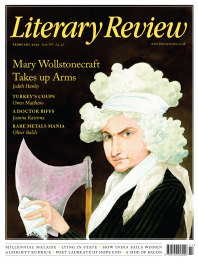Levi Roach
A Family Business
Blood Royal: Dynastic Politics in Medieval Europe
By Robert Bartlett
Cambridge University Press 672pp £24.99
In an age of liberal democracy, it is easy to forget that for most of human history, the world has been dominated by dynastic monarchs – by men (and, less frequently, women) who owed their position to their bloodlines. And no period of European history is more closely associated with dynastic rule than the Middle Ages.
The very way we think about dynasty is conditioned by the Middle Ages. It was in this era that the family tree, beloved of amateur and professional historians alike, was invented. It was also in these years that heraldry developed, a tradition kept alive proudly (if eccentrically) by the College of Arms. These are not the only legacies. The political map of modern Europe owes much to the vagaries of medieval dynastic fortune. It was only the chance death of Lothar II – who gave his name to Lorraine – without heirs that denied Europe a sprawling ‘Middle Kingdom’ between France and Germany. Likewise, it was the union of the ruling families of Castile-León and Aragon in 1469 which ensured that most of Iberia would in the future form a single Spanish realm. Just as fascinating are the roads not travelled. When Charles IV of France died in 1328 without a male heir, one of the strongest claimants to the throne was Edward III of England. In an alternative universe, Boris Johnson might be presiding over a Paris-based parliament, extolling the virtues of la patrie.
To understand medieval politics, we must therefore understand the dynamics of dynasty. Robert Bartlett takes us a considerable step closer to doing so in this masterful survey in which he traces the complexities of royal familial politics. His canvas is wide, taking in all the dynasties of medieval Europe (including

Sign Up to our newsletter
Receive free articles, highlights from the archive, news, details of prizes, and much more.@Lit_Review
Follow Literary Review on Twitter
Twitter Feed
Under its longest-serving editor, Graydon Carter, Vanity Fair was that rare thing – a New York society magazine that published serious journalism.
@PeterPeteryork looks at what Carter got right.
Peter York - Deluxe Editions
Peter York: Deluxe Editions - When the Going Was Good: An Editor’s Adventures During the Last Golden Age of Magazines by Graydon Carter
literaryreview.co.uk
Henry James returned to America in 1904 with three objectives: to see his brother William, to deliver a series of lectures on Balzac, and to gather material for a pair of books about modern America.
Peter Rose follows James out west.
Peter Rose - The Restless Analyst
Peter Rose: The Restless Analyst - Henry James Comes Home: Rediscovering America in the Gilded Age by Peter Brooks...
literaryreview.co.uk
Vladimir Putin served his apprenticeship in the KGB toward the end of the Cold War, a period during which Western societies were infiltrated by so-called 'illegals'.
Piers Brendon examines how the culture of Soviet spycraft shaped his thinking.
Piers Brendon - Tinker, Tailor, Sleeper, Troll
Piers Brendon: Tinker, Tailor, Sleeper, Troll - The Illegals: Russia’s Most Audacious Spies and the Plot to Infiltrate the West by Shaun Walker
literaryreview.co.uk